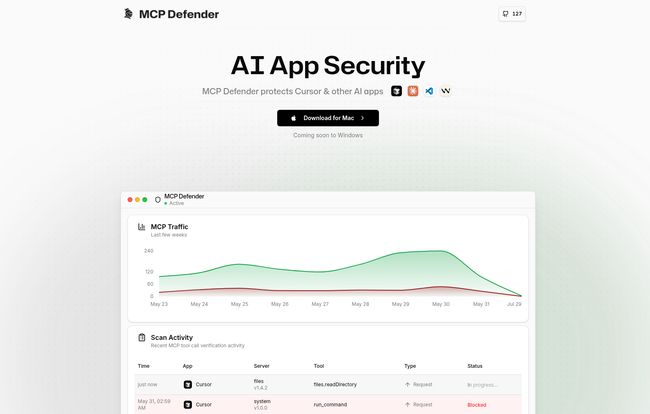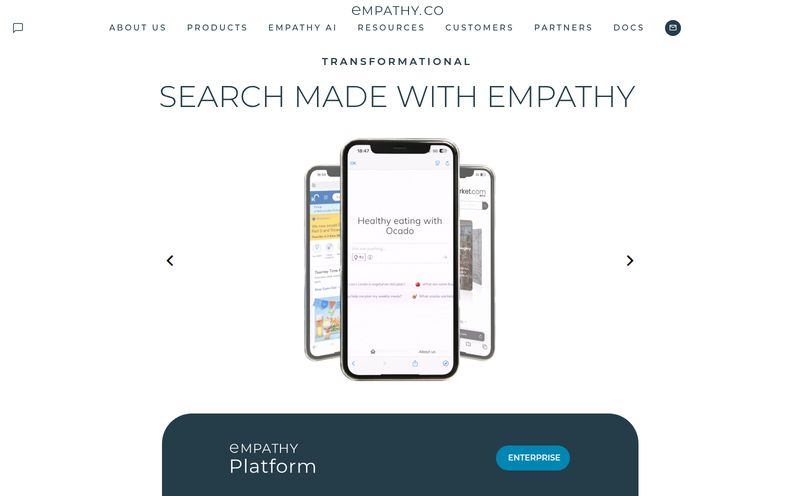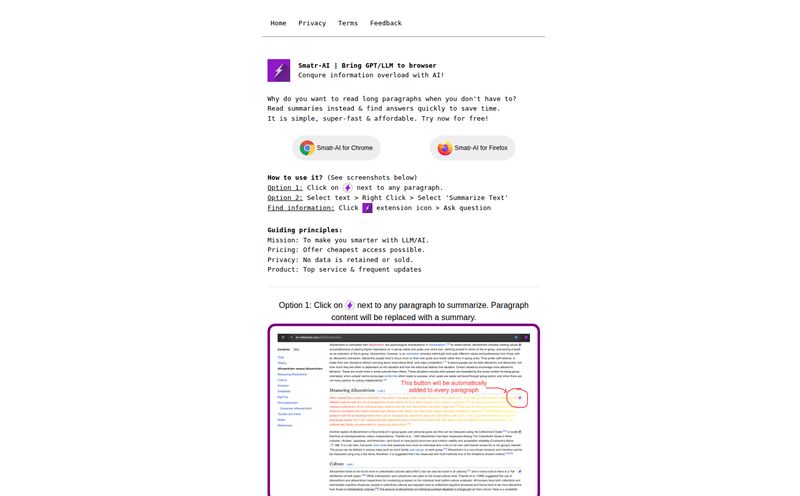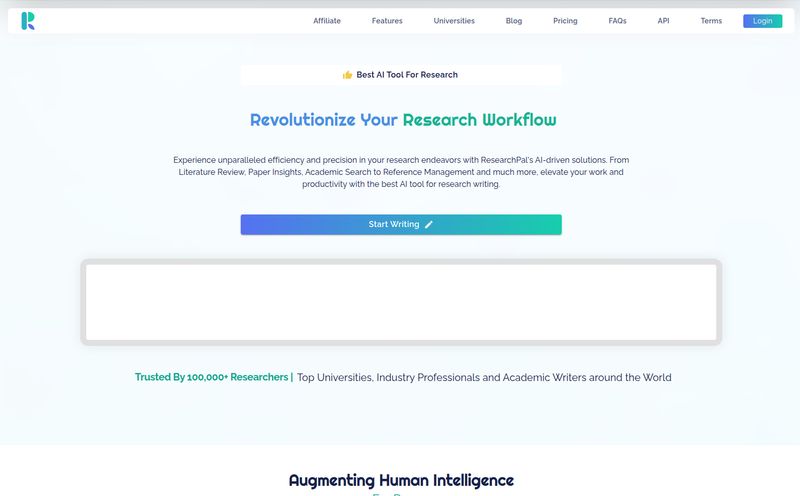As someone who lives and breathes SEO and tech trends, the last couple of years have been a whirlwind. AI is everywhere. It’s in my code editor, it's helping me draft emails, it's probably suggesting what I should have for dinner tonight. We're all moving at a breakneck pace, adopting these incredible tools to get more done.
But there’s this tiny, nagging voice in the back of my head. The same one that pipes up when I’m about to click on a sketchy link. It’s whispering, “So… what’s stopping someone from making this AI do something… bad?” We’re hooking these large language models up to our most sensitive applications, giving them tools and access. It feels a bit like giving the keys to your house to a brilliant, but incredibly naive, intern. What could possibly go wrong?
That's the rabbit hole I went down last week, and I came out holding something called MCP Defender. It claims to be an “AI Firewall” for your desktop apps, and frankly, my curiosity was piqued. A bodyguard for my AI? Sign me up.
So, What is MCP Defender Anyway?
Imagine you've got a super-exclusive nightclub. Your AI is the VIP guest, and the 'tools' it can use—like accessing your file system or running code—are the special services in the VIP lounge. MCP Defender is the bouncer at the door. It doesn't just check an ID; it frisks every single request coming in and out.

Visit MCP Defender
Technically speaking, it’s a desktop application that sits between your AI apps (like Cursor, Claude, VS Code, etc.) and the outside world. It specifically watches something called the Model Context Protocol (MCP), which is basically the communication channel these apps use to talk to their tools. When your AI wants to execute a command, MCP Defender intercepts it, checks it against a list of known shady activities, and even uses its own AI to spot new, clever attacks. If it sees something fishy, it throws up a flag and asks you, the boss, whether to allow or block the action. Simple, right?
The AI Threats We All Pretend Don't Exist
Why do we even need a bouncer? Because the back alleys of the AI world are getting grimy. We’re not just talking about the AI going all Skynet on us; the threats are much more subtle and, honestly, more realistic.
Prompt Injection: Gaslighting Your AI
This is the big one everyone's talking about. Prompt injection is a fancy term for tricking an LLM. You give it a cleverly disguised instruction hidden inside some other text, and you can make it ignore its original programming. For example, you could trick an AI assistant into leaking its own system prompts or, even worse, convince it to run a malicious command it was told never to execute. It’s a bit of social engineering, but for bots.
Credential Theft and Other Digital Muggings
This is where things get really scary. If an AI has access to tools that can read files or environment variables, a well-crafted attack could trick it into grabbing your API keys, your cloud credentials, or other secrets and sending them off to a hacker. We also have to worry about things like Arbitrary Code Execution (tricking the AI into running dangerous code) and Remote Command Injection (letting an attacker run commands on your machine through the AI). It’s the digital equivalent of leaving your front door wide open with a sign that says “Free valuables inside.”
How MCP Defender Actually Stands Guard
So we know the problem. How does this tool actually solve it? It’s not just a simple checklist. There are a few layers to this thing that I find pretty interesting.
An AI to Watch the AI
Here’s a fun bit of irony for you: MCP Defender uses an LLM to detect threats to other LLMs. This “Intelligent Threat Detection” is its secret sauce. It’s not just looking for exact-match signatures of known attacks. It’s looking at the intent behind a command. This is huge because attackers are constantly finding new ways to phrase their malicious prompts. A static defense will always be one step behind. By using AI, it can theoretically spot a novel attack that's never been seen before. A little meta, but I like it.
You Are Still the Boss: Complete Scan Control
I’m not a fan of security tools that operate like a black box. I want to know what’s happening, and I want the final say. MCP Defender seems to get this. The dashboard shows you exactly what it's catching and why. When it flags a potentially malicious action, it doesn’t just block it outright. It pops up a notification and lets you decide. This is critical because, let's face it, no automated system is perfect. There will be false positives, and the last thing you need is your security tool breaking your workflow because it got spooked by a legitimate script.
Open Source Builds Trust
This might be the most important feature for me. MCP Defender is open source (AGPL 3.0 license). In the security world, closed-source can be a red flag. You’re just asked to trust that the company has your best interests at heart. With open source, the code is right there for anyone to inspect, audit, and contribute to. There are no secrets. This transparency is, in my opinion, non-negotiable for a tool that has this level of access to your system.
Let's Talk Money: The Price of Peace of Mind
Alright, the part everyone scrolls down for. What's this gonna cost? The pricing structure is actually pretty straightforward, and honestly, very generous.
| Plan | Price | Key Features |
|---|---|---|
| Starter | $0 | Free for everyone, includes the core Mainline AI protection, but capped at 250 transactions. No direct support. |
| Basic | $29.99 /user/month | Everything in Starter, but with unlimited transactions and teams. This seems to be the sweet spot for professionals and small dev teams. |
| Enterprise | Custom | For the big players. Includes advanced security controls, migration support, and a dedicated account manager. |
My take? The $0 Starter tier makes trying this a complete no-brainer. 250 transactions are enough to get a real feel for how it works and see if it catches anything. For a solo developer or someone just playing around with AI tools, this might be all you ever need. It’s a fantastic way to lower the barrier to better security for everyone, not just corporations with deep pockets.
My Honest Take: Should You Bother Installing It?
So, is this just another app that's going to run in the background and eat up my RAM? Maybe. Is it worth it? I’m leaning heavily towards yes.
Some might argue it’s overkill. That the AI app developers should be building this security in themselves. And they should! But they aren't, not really, not yet. The whole space is moving too fast, and security often takes a backseat to shipping the next cool feature. We, the users, are the beta testers for this grand experiment. A tool like MCP Defender acts as a personal safety net.
For me, the peace of mind is worth the minimal friction. The thought of my AWS keys getting swiped because I fed my AI code assistant a weird block of text from a GitHub issue is... not pleasant. This tool is for developers who live in AI-assisted editors like Cursor. It’s for security professionals who want to monitor how these LLMs are interacting with local systems. Its for anyone who’s excited about AI but also has a healthy dose of paranoia. Nothing's perfect, but this feels like a genuinely solid step in the right direction.
Frequently Asked Questions
- What is the Model Context Protocol (MCP)?
- Think of it as the language or set of rules that AI applications use to interact with their 'tools' (like reading a file, searching the web, or running code). MCP Defender monitors this specific communication line because it's where many of the attacks happen.
- Does MCP Defender work on my operating system?
- Based on the website, it appears to be available for Mac, with a Windows version listed as "Coming Soon." So, Mac users are in luck right now, and Windows users should keep an eye out.
- Is the free version of MCP Defender actually useful?
- Absolutely. With a 250 transaction limit, it’s more of a trial or for light use, but it gives you the full core protection. It’s perfect for getting a feel for the tool and seeing if it fits your workflow before committing to a paid plan.
- How can I trust the 'AI-powered' detection?
- The trust comes from two places. First, the user is always in control and can approve or deny flagged actions. Second, the project is open source, so the community can vet the methodology and code to ensure it's not a 'black box' making arbitrary decisions.
- What happens if it blocks something I need to do (a false positive)?
- When MCP Defender flags an action, it presents you with a notification. You have the choice to "Allow" the action, so a false positive won't permanently block your workflow. You can simply override it for that specific instance.
A Firewall for the New Frontier
We're in the wild west of artificial intelligence. It's exciting, chaotic, and a little bit dangerous. While the titans of tech build their grand AI visions, we need practical tools to protect ourselves in the here and now. MCP Defender feels like one of those tools. It's not a magic bullet that solves all of AI's problems, but it’s a solid, well-thought-out shield for the everyday user.
By focusing on a specific, high-risk problem and offering a transparent, user-controlled solution, it’s a product I can get behind. Especially when they let you kick the tires for free. In an era where we're all plugging powerful AI into the heart of our digital lives, a dedicated bodyguard doesn't seem like a luxury—it feels like a necessity.



